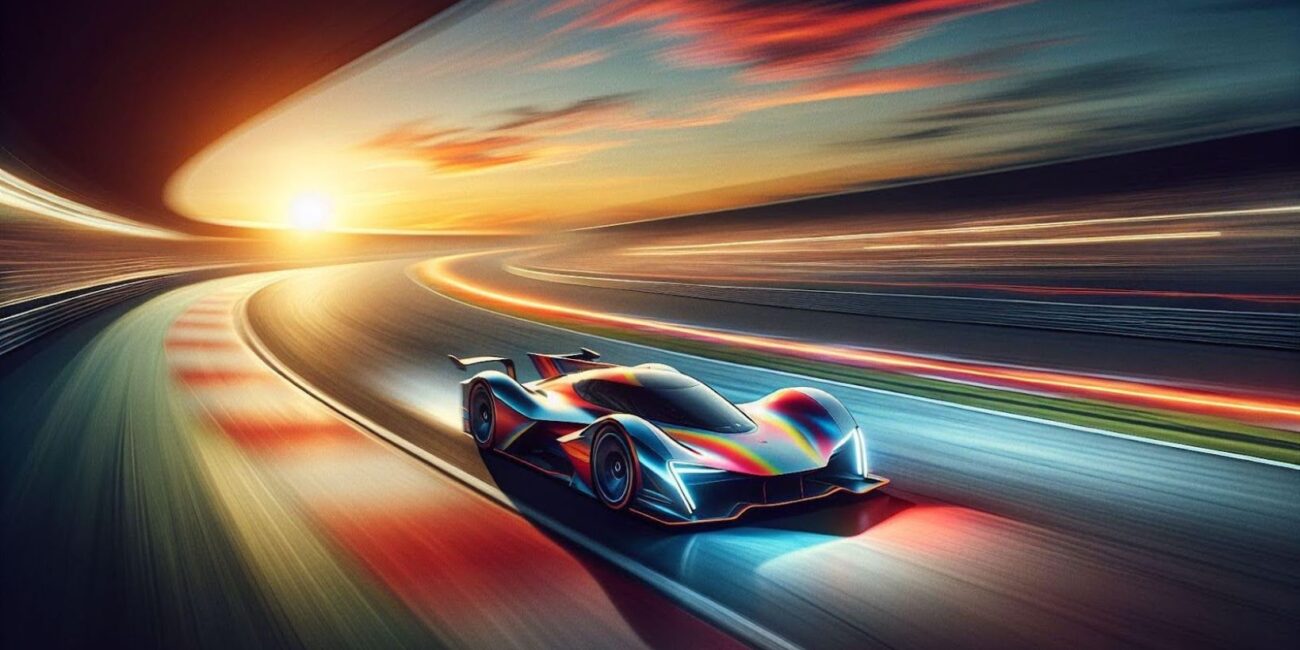Electric vehicle racing is gaining traction as a formidable force in the motorsports industry. This surge in popularity is not merely a fleeting trend; it’s a reflection of a broader shift towards sustainable and innovative technologies. Electric racing events are drawing significant attention from both enthusiasts and environmental advocates, eager to witness the fusion of speed and sustainability. Platforms like elbilsgurun.se are playing a crucial role in raising awareness, providing insights, and fostering discussions about the potential of electric vehicles in competitive racing.
The significance of electric racing extends beyond the racetrack. It represents a pivotal moment in the evolution of motorsports, challenging traditional perceptions and paving the way for a new era of racing. The transition to electric is not just about reducing emissions—it’s about redefining the capabilities and performance standards of race cars. As the world becomes increasingly conscious of environmental impacts, the motorsports industry is adapting, with electric racing leading the charge.
But what makes electric racing so compelling? Is it the promise of cleaner, quieter races, or the cutting-edge technology that powers these vehicles? Perhaps it’s the thrill of witnessing a new chapter in the storied history of motorsports, where innovation and sustainability are at the forefront. Whatever the reason, the rise of electric vehicle racing is a testament to the industry’s commitment to progress and its readiness to embrace change.
Technological Advancements Driven by Electric Racing
Electric vehicle racing is not just transforming the motorsports scene; it’s driving technological advancements that have far-reaching implications. One of the most significant areas of innovation is battery technology.

Racing demands high-performance batteries capable of delivering power efficiently and reliably. As a result, manufacturers are investing heavily in research and development to create batteries that not only enhance racing performance but also offer improvements for consumer electric vehicles. These advancements are making electric cars more efficient and extending their range, addressing one of the primary concerns of potential buyers.
Charging infrastructure is another area where electric racing is making an impact. The need for quick and efficient charging solutions in the racing context is accelerating the development of fast-charging technology. This progress is gradually being transferred to the consumer market, making electric vehicles more convenient for everyday use. The focus on reducing charging times and increasing accessibility is crucial for the wider adoption of electric vehicles.
Moreover, the emphasis on lightweight materials in electric racing is leading to innovations that benefit the automotive industry as a whole. Engineers are experimenting with advanced composites and alloys to reduce the weight of race cars without compromising safety or performance. These materials are finding their way into consumer vehicles, contributing to improved fuel efficiency and handling.
Electric racing is also pushing the boundaries of vehicle design and aerodynamics. The unique demands of electric powertrains require rethinking traditional design principles, leading to sleeker, more efficient vehicles. These innovations are not confined to the racetrack; they are influencing the design of consumer electric vehicles, making them more appealing and efficient.
The technological advancements driven by electric racing are not just about enhancing performance; they are about redefining what’s possible in the automotive industry. As these innovations continue to evolve, they hold the potential to transform not only how we race but also how we drive.
Impact on The Automotive Industry
The influence of electric racing on the automotive industry is profound. Lessons learned on the racetrack are being applied to consumer vehicles, leading to significant changes in design and engineering practices. The high demands of racing provide a testing ground for new technologies, allowing manufacturers to refine and perfect innovations before introducing them to the broader market.
One of the most notable impacts is the shift in perception regarding electric vehicles. Once viewed as a niche market, electric vehicles are now gaining mainstream acceptance, thanks in part to their success in competitive racing. The performance and reliability demonstrated by electric race cars are dispelling myths about the limitations of electric powertrains, encouraging more consumers to consider electric options.
Electric racing is also accelerating the adoption of electric vehicles by showcasing their potential in a high-performance context. The excitement and visibility of electric racing events are raising awareness and generating interest among potential buyers. As more people become familiar with the capabilities of electric vehicles, the barriers to adoption are gradually being lowered.

Furthermore, the collaboration between racing teams and automotive manufacturers is fostering innovation and driving progress. The insights gained from racing are informing the development of new models and technologies, leading to more efficient, reliable, and desirable electric vehicles. This symbiotic relationship between racing and consumer markets is a key driver of the ongoing evolution of the automotive industry.



